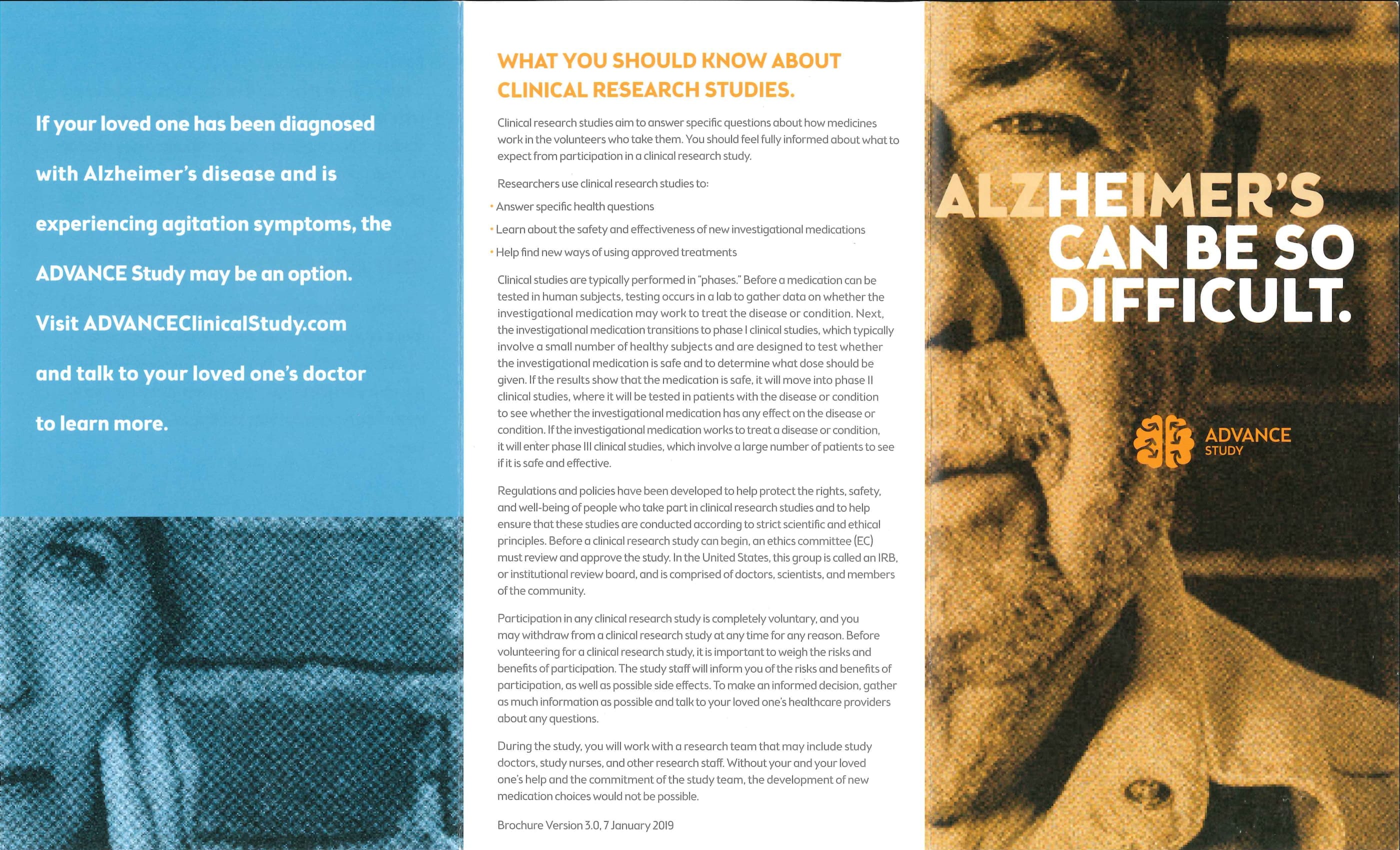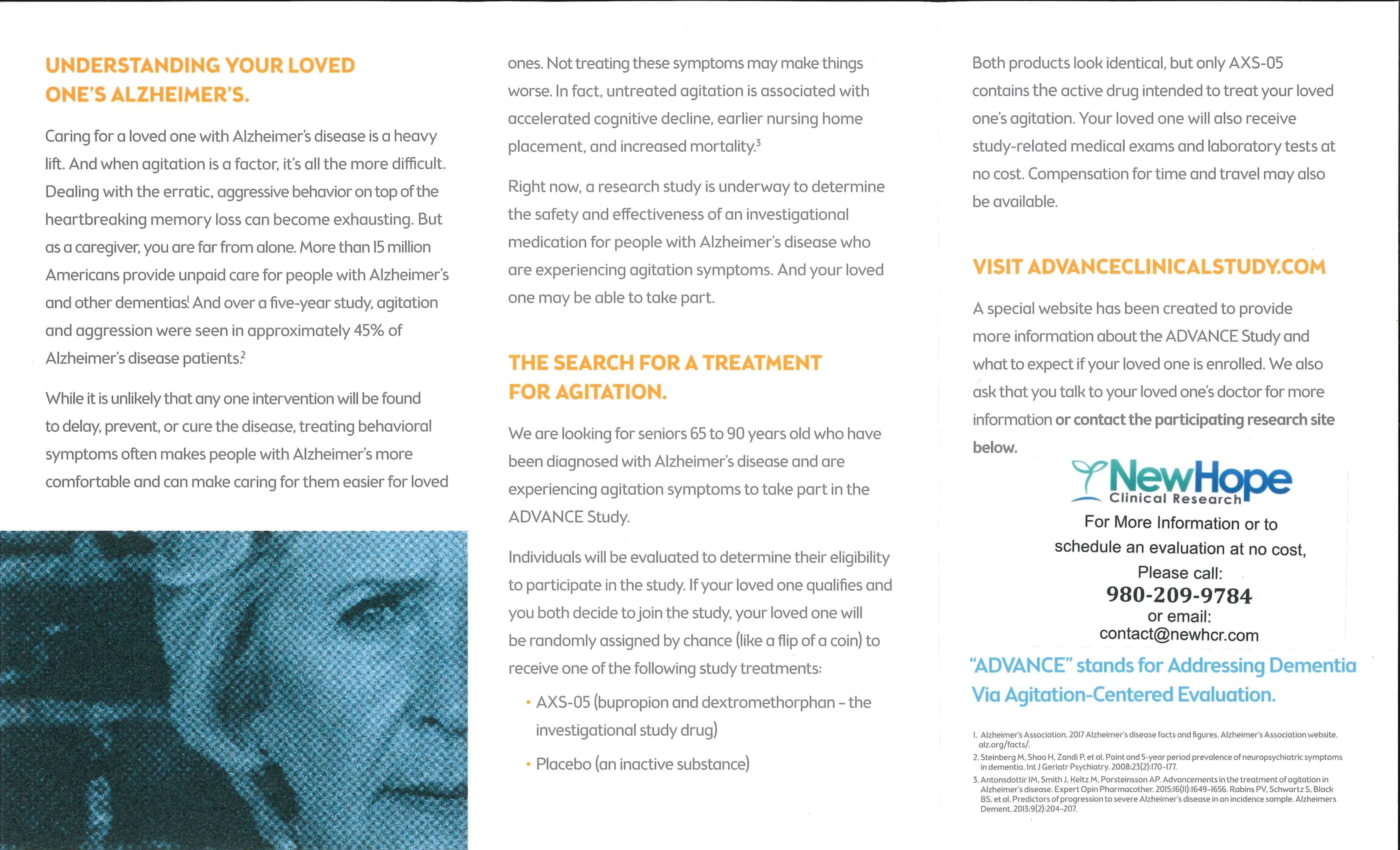MEMORY LOSS ALZHEIMER’S DEMENTIA
Alzheimer’s disease
Alzheimer’s Type of Dementia is the most common type of Dementia without any identifiable cause. This type of Dementia is named after the German Physician Aloysius Alois Alzheimer who is identified as having the first published case of pre-senile dementia in 1906.

What is DEMENTIA?
Loss of Brain Functions in the Areas of:
1. MEMORY Initially SHORT TERM (Registering New Information) and as the disease progresses LONG-TERM MEMORY.
Memory loss happens in this order: Immediate – Recent – Past – Remote
1. THINKING: Way of Reasoning and Judgment
2. BEHAVIOR: The actions or reactions in response to external or internal stimuli.
3. LOSS OF EXECUTIVE FUNCTIONING: Planning, Organizing, Sequencing, Abstracting ( Mnemonic- POSA)
WHAT ARE THE RISK FACTORS?
1. Females
2. First Degree Relative
3. Older (All Elderly is not prone)
4. Certain Genes Linked to Alzheimer’s such as Apo Lipoprotein E-e4 (APOE-e4) largest risk, Additional genes identified are CR1, CLU, and BIN1. MS4A, CD2AP, CD33, and EPHA1
5. Past Head Injury
WHAT ARE THE TYPES?
- Early onset; before age 65. Less common but get worse quickly. Early onset could run in families.
- Late onset: Most common. After age 65 and older.
HOW IS IT MANIFESTED?
Difficulty in many areas of mental function:
- Emotional behavior or personality
- Forgetfulness, misplacing things such as car keys, not remembering names, telephone numbers etc.
- Language
- Memory- Short and Long Term
- Perception
- Thinking and judgment (cognitive skills)
***Forgetfulness is the first noticeable manifestation***
What is MCI? (Mild Cognitive Impairment)
The Stage between forgetfulness related to normal aging and the development of Alzheimer’s Dementia.
- Thinking and memory- Mild impairment
- Do not interfere with everyday activities.
- Aware of the forgetfulness.
- MCI may not progress to Alzheimer’s Dementia
How is MCI manifested?
- Difficulty performing more than one task at a time
- Difficulty solving problems
- Forgetting recent events or conversations
- Taking a longer time to perform more difficult activities
As the Alzheimer’s Dementia Progresses, Impairments start interfering with the ability to take care of oneself.
What are the Late Manifestations of Alzheimer’s Dementia?
- Sleep disturbances, mainly maintaining the sleep or keeping awake
- Agitation, False Fixed Beliefs especially the fidelity of the spouse, depression
- Impairment in preparing meals, choosing proper clothing, and driving
- Impairment in reading or writing
- Forgetting details about current events
- Forgetting events in your own life history, losing awareness of who you are
- Abnormal perception(Mainly Visual Hallucinations) Flying off the handle, and violent outbursts
- Poor judgment and loss of ability to recognize danger
- Using the wrong word, mispronouncing words, speaking in confusing sentences
- Social Withdrawal
What is severe Alzheimer’s Dementia?
- Do not understand language
- Do not recognize family members
- Do not Perform basic activities of daily living, such as eating, dressing, and bathing
Other manifestations may also occur with severe Alzheimer’s Dementia
- Swallowing problems
- Incontinence of Bladder and Bowel.
New Hope Clinical Research’s experts in Alzheimer’s Dementia
Will perform
- Complete physical exam, including neurological exam
- Questions about medical history and symptoms
- A mental status examination
- ADAS-cog (Alzheimer’s Disease Assessment Scale-cognitive subscale)
- NPI (Neuropsychiatric Inventory)
- Dementia work up-Includes laboratory and Imaging studies
A diagnosis of Alzheimer’s Dementia is made when certain symptoms are present, and by making sure there is no other causes of dementia are present.
The dementia workup is done to rule out other causes of Dementia such as:
- Anemia
- Brain tumors
- Chronic infection
- Intoxication from medication
- Severe depression (Pseudodemetia)
- Stroke
- Thyroid deficiency
- Vitamin B12 deficiency
Computed Tomography (CT) or Magnetic Resonance Imaging (MRI) of the brain may be done to rule out brain tumor or stroke.
- In the early stages of Alzheimer’s dementia, brain scans may be normal. In later stages, an MRI or CT may show a decrease in the size and volume of different areas of the brain.
- While the scans do not confirm the diagnosis of Alzheimer’s Dementia, but exclude other causes of dementia (such as stroke and tumor).
Brain Biopsy is the conclusive diagnostic tool for the diagnosis of Alzheimer’s Dementia. This is to have a sample of the brain tissue microscopically examined after the death of the patient who has been diagnosed with Alzheimer’s Dementia clinically or while the patient is alive.
The following Brain Tissue changes are more common in people with Alzheimer’s Dementia:
- “Neurofibrillary Tangles” (Twisted fragments of an abnormal protein(Beta Amyloid) within nerve cells that clog up the cell)
- “Neuritic Plaques” (Abnormal clusters of dead and dying nerve cells, other brain cells, and abnormal protein)
- “Senile plaques” (Areas where products of dying nerve cells have accumulated around the abnormal protein).
Treatment Options:
There is no cure for Alzheimer’s dementia.
The treatment goals are:
- Slow down the progression of the disease (Difficult to do)
- Management of behavior problems, confusion, and sleep disturbances
- Modify home environment to perform daily activities of life (ADL)
- Support and education of family members and other caregivers
DRUG TREATMENT
Medications are supposed to help slow down the progression of the disease. The benefits from these medications are minimal. Sometimes there may not be a noticeable change.
Before using these medications, ask the providers:
- What are the benefits and risks including potential side effects?
- When is the best time, if any, to use these medicines?
What are the Medications available for Alzheimer’s Dementia?
Cholinesterase Inhibitors: Alzheimer’s Dementia changes the brain in many ways. Research has shown that there is a decrease in the level of Acetylcholine, a chemical messenger that assists memory, thought and judgment.
Cholinesterase inhibitors were developed to improve the effectiveness of acetylcholine either by increasing the levels in the brain or by strengthening the way nerve cells responds to it. Increased concentrations of acetylcholine in the brain lead to increase communication between nerve cells and may temporarily improve or stabilize the symptoms of Alzheimer’s Dementia. These drugs appear to work best in the mild to moderate stages of Alzheimer’s Dementia
These medications do not work for all patients. Some people will improve, some will not and others will continue to deteriorate.
In cases where these drugs appear to be effective, patients and caregivers reported a slowing in symptoms such as memory loss, reduced anxiety, improved mood and restored confidence levels.
Once a patient stops taking a drug, their condition will deteriorate over a period of 4 to 6 weeks until they are at the same point as an individual who has not taken the drug
- Donepezil(Aricept),
- Rivastigmine (Exelon tablets and Patches)),
- Galantamine (Razadyne, formerly called Reminyl).
- Tacrine (Cognex –First medication on the market, but it is not prescribed anymore because of severe side effects)
The three most commonly used medications from this group are Aricept, Exelon, and Razadyne. There will not be much benefit from inter switching the medication from this group if one of the medication from this group fails to improve the symptoms.
Common side effects:
- Upset Stomach
- Diarrhea
- Vomiting
- Muscle cramps
- Fatigue
N-Methyl D-Aspartate (NMDA) Receptor Antagonists:
Memantine (Namenda):
Memantine, a partial antagonist of N-methyl-D-aspartate receptor (NMDAR), approved for moderate to severe Alzheimer’s Dementia (AD) treatment. Memantine may have potential in alleviating additional neurological conditions, such as vascular dementia (VD) and Parkinson’s disease (PD). In various animal models, Memantine has been reported to be a neuroprotective agent that positively impacts both neurodegenerative and vascular processes. While excessive levels of glutamate result in neurotoxicity, in part through the over-activation of NMDARs, Memantine-as a partial NMDAR antagonist, blocks the NMDA glutamate receptors to normalize the glutamatergic system and ameliorate cognitive and memory deficits. The key to Memantine’s therapeutic action lies in its uncompetitive binding to the NMDAR through which low affinity and rapid off-rate kinetics of Memantine at the level of the NMDAR-channel preserves the physiological function of the receptor, underpinning Memantine’s tolerability and low adverse event profile. As the biochemical pathways evoked by NMDAR antagonism also play a role in PD and since no other drug is sufficiently effective to substitute for the first-line treatment of L-dopa despite its side effects, Memantine may be useful in PD treatment with possibly fewer side effects. In spite of the relatively modest nature of its adverse effects, Memantine has been shown to provide only a moderate decrease in clinical deterioration in AD and VD, and hence efforts are being undertaken in the design of new and more potent Memantine-based drugs to hopefully provide greater efficacy
Common Side effects:
- Back pain
- Constipation
- Diarrhea
- Dizziness
- Drowsiness
- Headache
- Pain
- Weight gain.
There may be a need for medication to control aggressive, agitated, or dangerous behaviors. This may include:
First generation typical antipsychotics:
- Haldol
Second Generation Atypical Antipsychotics:
- Risperidone
- Quetiapine
These are usually given in very low doses due to the risk of side effects including an increased risk of stroke and death (Black Box warning from FDA)
It may be necessary to stop any medications that make confusion worse. Such medicines may include painkillers, cimetidine, central nervous system depressants, antihistamines, sleeping pills, and others. Never change or stop taking any medicines without first talking to the provider.
SUPPLEMENTS
There is a strong belief that certain vitamins and herbs may help prevent or slow down Alzheimer’s Dementia.
- There is no strong evidence that Folate, vitamin B12, and vitamin E prevent or slows the disease once it occurs.
- Research studies have not shown any evidence that Ginkgo Biloba lowers the chance of developing dementia.
- DO NOT use Ginkgo if you take blood-thinning medications like Warfarin (Coumadin) or a class of antidepressants called monoamine oxidase inhibitors (MAOIs)
- Consult the provider prior to taking any supplements.
- Herbs and supplements available over the counter (OTC) are NOT regulated by the FDA.
Axona-FDA approved this product as a medical food in patients with mild to moderate Alzheimer’s Dementia.
Axona provides an alternative energy source to brain cells
Glucose is the primary source of energy for the brain. Alzheimer’s disease (AD) patients exhibit a decline in the ability to metabolize glucose in the brain. Inadequate glucose leads to damage resulting in impaired memory and cognition and brain shrinkage. These metabolic defects in the brain often appear 10 to 20 years earlier than other Alzheimer’s symptoms.
Axona is converted by the liver into ketone bodies, which provide an efficient alternative fuel for brain cells. Ketone bodies are naturally occurring compounds that are produced mainly by the liver from fatty acids during periods of extended fasting. Ketone bodies have been demonstrated to protect neurons.
About Axona:
- Axona is a specially formulated medical food* intended for the clinical dietary management of the metabolic processes associated with mild-to-moderate AD
- Axona is a proprietary formulation of caprylic triglyceride
- Caprylic triglyceride safely increases plasma concentrations of ketone bodies (predominantly BHB), which can provide an alternative energy source for the brains of AD patients
- Caprylic triglycerides are metabolized differently than long-chain triglycerides and are not generally associated with increased blood cholesterol levels
- Clinical trials have shown that Axona improves cognitive function in some AD patients
- Axona is administered orally once a day, supplied as a powder to be mixed with water or other foods/liquids
- Administer after a meal, preferably breakfast or lunch
- Axona can be taken with commonly prescribed AD medications
- Axona’s adverse events are primarily limited to the gastrointestinal tract
Axona is administered under physician supervision and dispensed by prescription
Support Groups:
For additional information and resources for people with Alzheimer’s disease and their caregivers, see Alzheimer’s disease support groups.
What is the Prognosis? (What to Expect?)
How quickly Alzheimer’s Dementia gets worse?
- Different for each person
- Develops quickly will worsen quickly.
- Patients with Alzheimer’s Dementia often die earlier than normal
- Patient may live anywhere from 3 – 20 years after diagnosis.
- The final phase of the disease may last from a few months to several years.
- During that time, the patient becomes totally disabled.
- Death usually occurs from an infection or organ failure.
What are the Complications?
- Abuse by an over-stressed caregiver
- Bedsores
- Loss of muscle function
- Unable to move joints because of the muscle function loss
- Infection, such as urinary tract infection and pneumonia
- Other complications related to immobility
- Falls and broken bones
- Harmful or violent behavior toward self or others
- Loss of ability to function or care for self
- Loss of ability to interact
- Malnutrition and dehydration
Is it Possible to Prevent Alzheimer’s Dementia?
- No proven way to prevent Alzheimer’s Dementia
- Some practices that may be worth incorporating into daily routine, particularly if you have a family history of dementia.
- Consume a low-fat diet.
- Eat cold-water fish (like tuna, salmon, and mackerel) rich in omega-3 fatty acids, at least 2 to 3 times per week.
- Reduce intake of linoleic acid (margarine, butter, and dairy products)
- Increase antioxidants like carotenoids, vitamin E, and vitamin C by eating plenty of darkly colored fruits and vegetables.
- Maintain a normal blood pressure.
- Stay mentally and socially active throughout life.
- Consider taking nonsteroidal anti-inflammatory drugs (NSAIDs) like ibuprofen (Advil, Motrin), sulindac (Clinoril), or indomethacin (Indocin).
- Statin drugs, a class of medications normally used for high cholesterol, may help lower your risk of Alzheimer’s Dementia.
- Talk to New Hope Clinical Research about the pros and cons of using these medications for prevention.
Visit www.clinicaltrials.gov for latest ongoing clinical trials for Alzheimer’s Dementia.
There is no obligation to take part in clinical trials but consider it, even if it does not benefit you directly, it could benefit future generations.
Finding a cure: Alzheimer’s patient helps test the new drug


Location
New Hope Clinical Research
3101 Latrobe Dr
Charlotte, NC 28211
Fax : 980-226-5843
Email : contact@newhcr.com
Office Hours
- Monday – 8:00 am – 5:00 pm
- Tuesday – 8:00 am – 5:00 pm
- Wednesday – 8:00 am – 5:00 pm
- Thursday – 8:00 am – 5:00 pm
- Friday – 8:00 am – 5:00 pm
- Saturday – Closed
- Sunday – Closed








